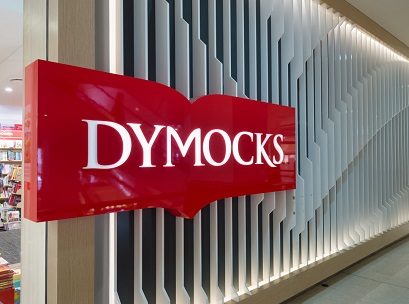
Retail spending has been virtually flat over the past several months – the Australian Bureau of Statistics declared the 0.4 per cent jump in August below expectations – leaving many businesses eager for an uplift from the upcoming holiday season.
But as the peak period draws near, so too do concerns about the impact of Black Friday on consumers’ pre-Christmas spending. The US sales event has become increasingly popular in Australia in recent years and was partially blamed for a disappointing December 2018. According to retailers, consumers completed the bulk of their Christmas shopping over the five-day period between Black Friday and Cyber Monday, buying gifts at a discount and leaving shops without the usual hustle and bustle. Is history doomed to repeat itself? The sale is no less popular in 2019 than it was last year, but retailers also have become savvier about their discount strategies.
“It’s fair to say that the peak shopping period has now moved, and that the peak period is now actually probably toward the end of November,” KMPG head of retail Matt Darby told Inside Retail Weekly.
“It’s not that Christmas is dropping off – it’s still very much a key part of our social and shopping calendar – but I think the effect that Black Friday has had is that it has moved a lot of the planned purchases sooner.”
According to Darby, while retailers need to be “in it to win it”, it is also increasingly important not to undervalue a retail offering with excessive discounting, with “promotions for the sake of promotions” doing more harm than good.
“You have to be careful that the brand isn’t devalued by the activity,” Darby said.
“If you look at genuinely differentiated higher value brands, like luxury retailers, if they are promoting extensively people will just wait for the promotion to buy the products. Then the notion of full price becomes a fallacy.”
Competing on value, not price
One such retailer differentiated through its customised and personalised product range, TinyMe, said it will be participating in Black Friday sales but will limit discounting.
“We are frequently doing different promotions, but they’re not substantial discounts,” TinyMe chief operating officer Ben Hare told IRW.
“If you look at the international experience, it has generally gotten more and more peaked. Customers get a good deal, and so they’re more likely to shop again the next year.
“The counterbalance to that is the effect this has on retail profitability, and also in the logistics and fulfilment side. Ultimately, the cost of dealing with those peaks is expensive when you get affected by margin both on the execution of the shipping and logistics, but also the fact that you’re offering a substantial discount.”
Swinburne University assistant professor of marketing Dr Jason Pallant noted that while discounts are essential for retailers in certain categories – where two retailers are selling the same product, for example – there are more ways to increase the overall value of a purchase than simply reducing price.
“We’ll see retailers feeling like they have to participate, because if they don’t, they’ll miss out. If I can buy a particular thing and can do so at multiple retailers … you’ve got to be a part of it because if you’re not, someone else is, and then you’ve lost that sale,” Pallant told IRW.
“However, there’s two ways to increase the value of something. You can reduce the price, so that the benefits you’re getting now look better relative to the price, or you can increase the benefit for the same price.”
According to Pallant, the second approach will be key to competing in a market where internationally-based retailers such as Amazon have a publicly stated strategy to enter a market, kill incumbents on price and margin, and then take over.
“[Amazon] is happy to wear losses. This is not a sustainable strategy for our domestic retailers,” he said.
This method is being adopted by book retailer Dymocks during the upcoming holiday period, with its Black Friday strategy revolving around offering consumers increased loyalty points for purchases over certain thresholds in order to encourage customers to shop with them, as well as potentially tempting new customers to join the club.
“Christmas shopping really ramps up in early November,” Dymocks general manager Sharyn Villaverde told IRW.
“Black Friday used to be predominantly an online shopping event, but now most Australian retailers use it as a springboard to Christmas, with offers running in-store and online across the four days through to Cyber Monday.”
The biggest sale ever, until the next one
Not everyone is using Black Friday to their advantage, however, and some retailers can get sucked into offering ever higher discounts to stand out in a crowded market.
“[Retailers] are essentially guaranteeing that they’re going to sell things for less than the recommended price. I think that’s a dangerous trend to continue, because we all get desensitised to things quickly,” Pallant said.
“I see a lot of retailers doing the ‘biggest sale ever’, and then the next year it’s also the ‘biggest sale ever’, which means either a bigger discount or more products on sale.
“If you follow that to its conclusion, we’re just going to end up with everything always being on sale, which then reduces what the prices are the margins you can get for those products. It’s a challenging thing, because if you’re the one retailer that’s not on sale people will go elsewhere, but if you’re always on sale you’re reducing the perceived value of your product.
“It’s definitely a difficult place to be in.”





